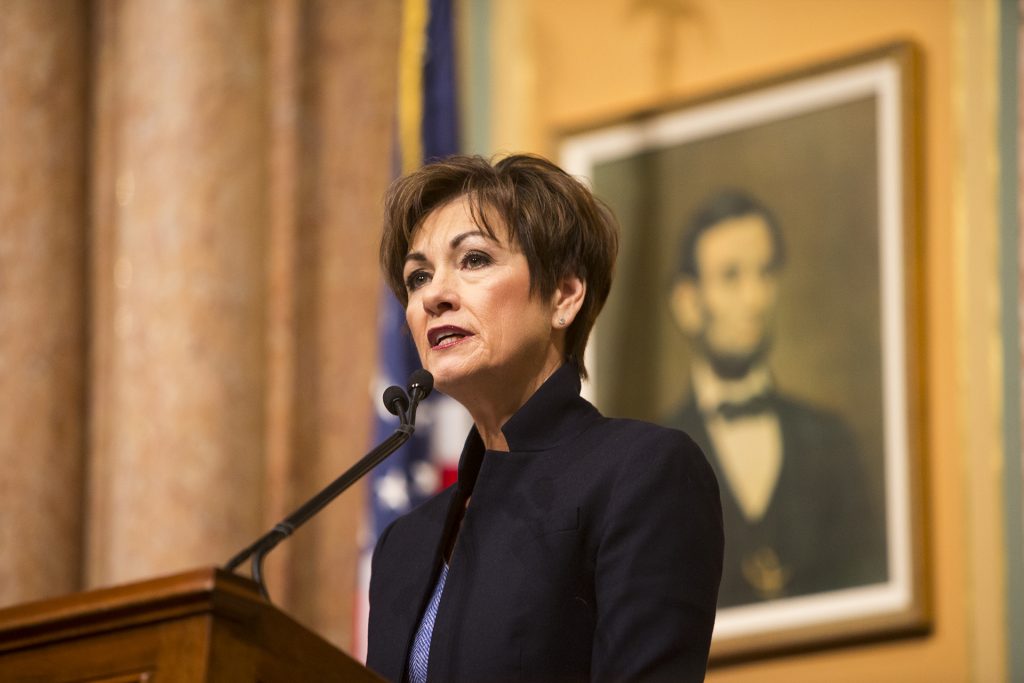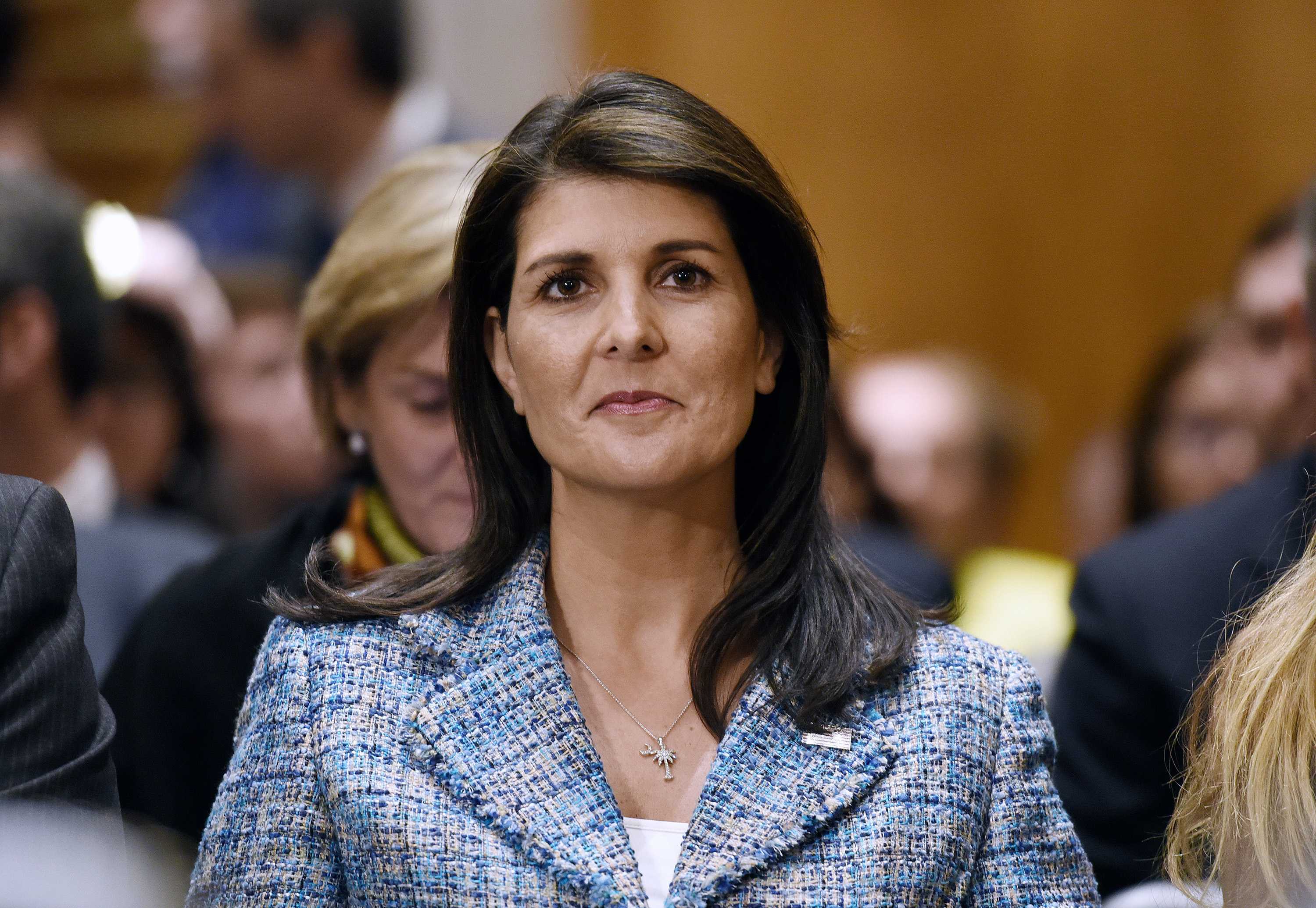Rosario: WOTUS reaction shows anxiety over federal regulation
Iowa has joined the fight against WOTUS, with determination to protect farmers from federal overreach.
Iowa Gov. Kim Reynolds speaks during her first Condition of the State address in the Iowa State Capitol in Des Moines on Tuesday, Jan. 9, 2018.
September 24, 2018
A federal judge in North Dakota has said Iowa may join states in temporarily halting the implementation of the Obama-era Waters of the United States rule.
Per the request of Gov. Kim Reynolds, Iowa has joined injunction proceedings filed in June 2015 by 12 states and two agencies in a 13th state. The Trump administration proposed to repeal the rule in July 2017. As of Sunday, WOTUS, a regulation under the Clean Water Act, has been blocked in 28 states.
The Clean Water Act of 1972 protected “navigable waters” from pollution. After it was passed, it became clear that smaller streams and wetlands also needed to be protected, especially those that flow into sources that provide drinking water. Congress and later administrations failed to define which waters fell under the act. The Army Corps of Engineers interpreted the act differently across the country.
WOTUS drew on more than 1,200 scientific studies and received more than 1 million comments in an effort to clarify the Clean Water Act. It defined and protected tributaries that affect downstream waters, safeguarded waters next to rivers and lakes, and reduced the use of case-specific analysis of waters. Still, the rule was met with backlash from farmers and conservative groups in Iowa and across the country, who called it federal overreach.
RELATED: Helton: Climate change will create an enormous refugee crisis
Last year, Iowa Farm Bureau President Craig Hill said he had never seen a government rule “more consequential to agriculture” than WOTUS.
In a statement last week, Reynolds said, “Iowa farmers and small-business owners will not be burdened by this federal overreach while we continue fighting to permanently end the WOTUS rule.”
But WOTUS may not actually have much of an effect on Iowa farmers. Non-point source pollution — runoff of fertilizer, manure, and other contaminants that seep into lakes and streams — is exempted from application of the Clean Water Act.
The rejection of WOTUS seems to come from a larger disparity of environmental-policy implementation in red and blue states, specifically related to the 2016 presidential vote. Iowa voted for Trump.
Fifteen states, all but one that voted for Hillary Clinton in 2016, plan to follow stricter California standards after the Trump administration proposed a rollback to Obama-era rules on auto emissions. When it comes to WOTUS, all but three of the 28 states that blocked the rule voted for Trump. WOTUS is in effect in just five states that voted for Trump.
This red-blue divide is unsurprising; red states tend to be more skeptical about federal regulations, specifically environmental ones that are thought to stifle economic growth. The fear of WOTUS negatively affecting Iowa farmers seems to come more from this fundamental opposition to federal regulation rather than what the rule will actually do here.
It’s not unreasonable to worry about the slippery slope of governmental power. But whether WOTUS is repealed or not, the vagueness of what the Clean Water Act protects will have to be federally redefined at some point. The replacement of WOTUS could be a years-long process that may end with a weakened rule, more polluted waterways, and regulatory uncertainty — a return to officials interpreting case by case and farmers further guessing what they can and can’t do with their land. Perhaps this alternative would relieve concerns of federal overreach. But would it really be any better?






